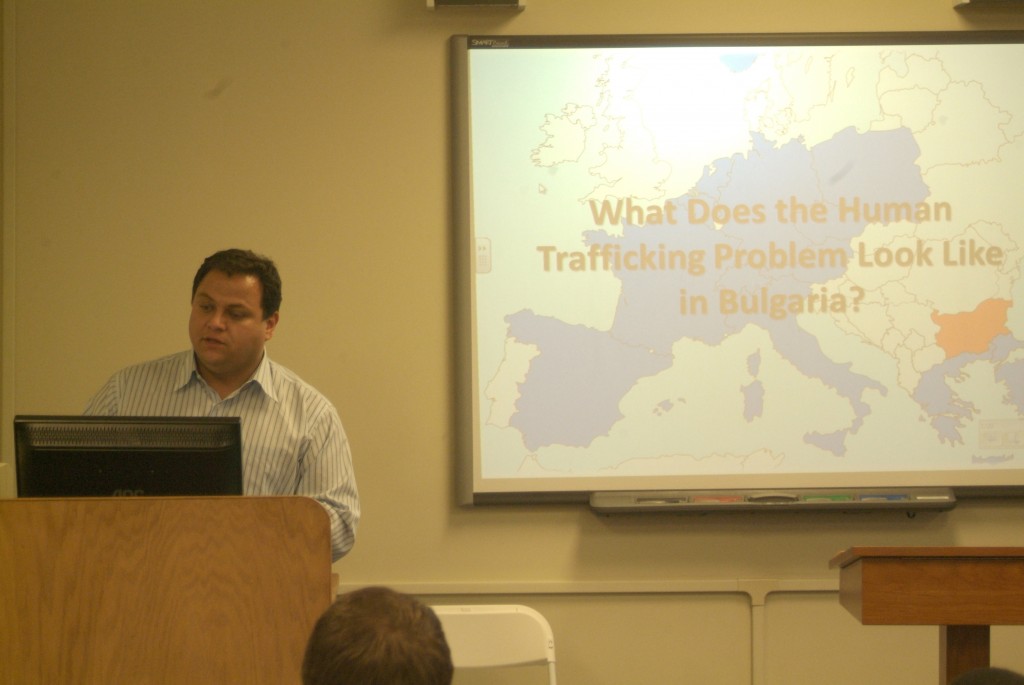By Maddie Mondell
Triangle Writer

A recent speaker in Bryan’s Leadership Forum said lax immigration laws and corruption make human trafficking in Bulgaria more of an international crime than in the U.S.
Kalo Milkoff, former senior technology officer of the Polaris Project and native to Bulgaria, talked about the issue of human trafficking on Tuesday, February 26.
Milkoff was hosted by the Center for Leadership Initiative’s Leadership Forum and was invited to speak in a couple different classes throughout the day, one of them being Bob Jensen’s ST: Terrorism class.
“I am going to try and fit centuries of history into four slides,” Milkoff explained.
With about 30 attendees, including those in the class, Milkoff gave a brief overview of the history of Bulgaria, the statistics of those trafficked and what is currently being done.
Milkoff said the human trafficking problem existed long before Bulgaria joined the European Union (EU) in 2007. However, Bulgarian borders and travel restrictions became lenient after Bulgaria joined the EU, providing easier routes for those trying to move people across the border illegally.
The human trafficking problem in Bulgaria contrasts with the problem that the U.S. is seeing with human trafficking. In the U.S., the human trafficking is domestic, meaning Americans are trafficking Americans.
In Bulgaria, Russians and other surrounding countries’ people are being imported into the country, while Bulgarians are being exported into other regions, such as the U.S., which is on the “consumer” side of the trade.
The Trafficking in Persons (TIP) Report for 2010 released by the State Department reported that Bulgaria is identified as a tier two, source country, meaning that a lot of the trafficking is coming from that country into other countries.
Another unique aspect about Bulgaria’s situation is their large population of Roma people. Roma, or gypsies, are Bulgaria’s third largest people group in the country, according to the 2011 Bulgarian Census. Because of the Roma characteristics of nomad-like behavior, both legal and illegal immigration is prevalent in Bulgaria. Not only because of the Roma, but because of Bulgaria’s location making it prime transit territory for trafficking.
The Bulgarian government is also not doing very much to try and combat the trafficking, Milkoff said. Bulgaria’s government has a lot of “law on paper”, but does not appear to practice what is preached. There is a lot of corruption and a lot of everyday citizens who don’t want anything to do with the issue.
“I am allowed to criticize because I am a native Bulgarian,” Milkoff said, chuckling.
Milkoff is currently trying to make contact with the Bulgarian police in an attempt to offer free training and awareness workshops. Milkoff hopes to partner with Bryan College in the future to take a stand against human trafficking in Bulgaria.


